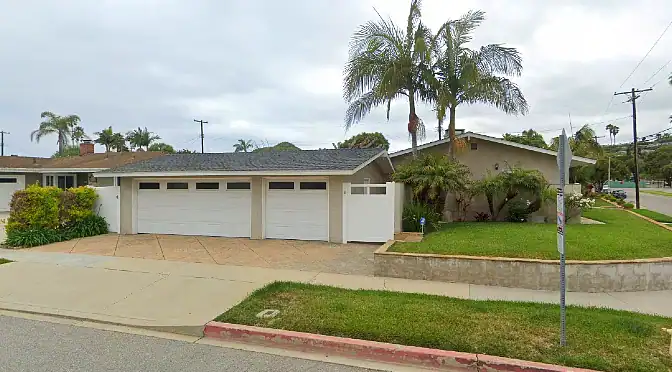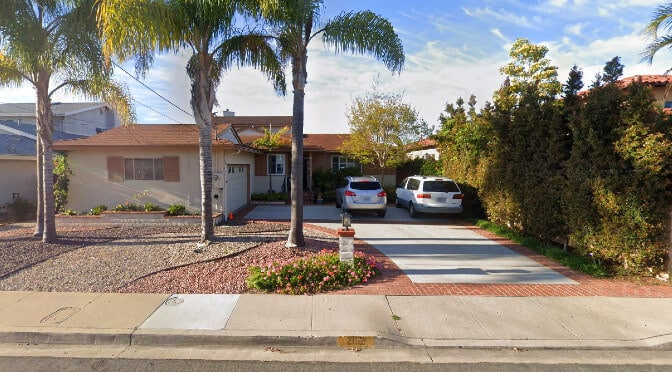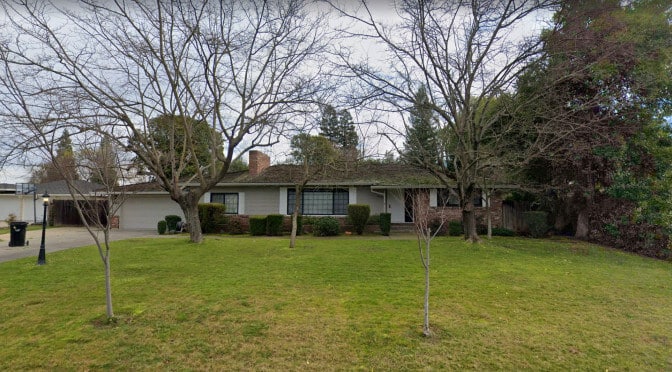
Top Probate Loan Questions Answered: Everything You Need to Know
Whether you’re a beneficiary, heir, or executor/probate administrator of an estate, navigating the probate process can be complex, especially when it comes to financial considerations. In this article, we’ll delve into each of the top asked questions on probate loans, providing you with accurate and detailed insights to help you make informed decisions.
1. What is a probate loan?
A probate loan, also known as an inheritance loan or estate loan, is a financial option available to heirs and beneficiaries who are in the process of receiving their inheritance and working towards closing the probate. It allows probate administrators to borrow against estate-owned real estate assets to settle debts of the estate, facilitate a sibling buyout, raise funds to repair the real estate or provide an heir with an advance.
Essentially, a probate loan provides immediate liquidity by leveraging the value of the real estate assets held in the estate.
2. How does a probate loan work?
Probate loans work by providing the estate with a loan against the estate’s real estate. A note and deed of trust is recorded against the real estate just like a normal mortgage. Probate loans typically require monthly payments until they are repaid. The loan is repaid in full once the property is sold, refinanced or paid off with cash.
The loan amount is determined by various factors including the amount of funds needed by the estate, the estimated value of the real estate and the loan to value ratio available from the probate lender.
3. Can you get a loan against real estate in probate?
Yes, it is possible to obtain a loan against real estate that is currently going through the probate process. Probate loans are specifically designed to provide liquidity to beneficiaries during this period. The loan is secured by the real estate assets within the estate, allowing individuals to access a portion of their inheritance without having to wait for the probate process to be finalized.
4. How long does it take to get a probate loan?
Probate loans can be processed very quickly by real estate-based probate lenders, usually within 7-10 days. The probate administrator must provide all the needed information and review and sign all loan disclosure and documents in a timely manner. The probate attorney must also provide all the needed documentation such as a notice of proposed action and letter stating there are no estate taxes due.
5. What are the eligibility requirements for a probate loan?
Eligibility requirements for probate loans can vary among lenders, but there are common criteria that applicants must generally meet. These may include:
- Being the court appointed probate administrator with full authority
- The estate must have sufficient equity in real estate assets to secure the loan.
- Providing relevant documentation, such as letters of administration, notice of proposed action and any other needed probate documents.
- Demonstrating the ability to repay the loan by later refinancing the probate loan or selling the property
6. Are probate loans available for properties held in trust?
Probate loans are not needed for properties within a trust. Properties within a trust would be eligible for a trust loan which follows a similar process without any documents needed from the probate court.
7. What are the advantages and disadvantages of probate loans?
Probate loans come with both advantages and disadvantages. Understanding these can help you make an informed decision. Here are some key points to consider:
Advantages:
- Fast access to funds for probate administrators and beneficiaries, allowing them to meet financial needs.
- Flexibility in using the loan amount for various purposes, such as debt consolidation, covering expenses or funding a sibling buyout.
- Being able to obtain financing in a situation (probate) where banks and traditional lending institutions are not able to lend.
Disadvantages:
- Higher interest rates compared to traditional loans, due to the higher risk associated with probate loans.
- Potential fees and closing costs associated with obtaining a probate loan.
- The loan amount is limited to a percentage of the value of the real estate, which may not cover the full amount needed.
It’s essential to carefully consider these pros and cons before deciding if a probate loan is the right option for your situation.
8. Can you get a probate loan with bad credit?
One of the advantages of probate loans is that they often have more lenient credit requirements compared to traditional loans depending on the exit strategy. If the exit strategy for the probate loan is selling the property, the lender is much more likely to accept subpar credit.
While bad credit may not disqualify you from obtaining a probate loan, it can affect the interest rate and terms offered. Lenders may consider factors such as the value of the real estate assets, the loan to value ratio and the ability of the borrower to repay the loan.
9. Do you need an attorney to get a probate loan?
The probate administrator doesn’t need an attorney specifically for obtaining a probate loan. However, it’s always advisable to consult with an experienced probate attorney who can guide you through the overall probate process and provide insights into potential legal implications.
10. How much can you borrow with a probate loan?
The loan amount you can borrow with a probate loan typically depends on the estimated value of the real estate assets within the estate. Loan amounts of up to 65-70% of the current value of the real estate is typically available to the probate administrator as long as the exit strategy makes sense.
11. What happens if you don’t repay a probate loan?
If you fail to repay a real estate probate loan, the lender has the right to seek repayment by initiating the foreclosure process. The property may be auctioned at a foreclosure sale.
12. Are there any alternatives to probate loans?
Yes, several alternatives to probate loans exist. These include:
- Personal loans: If you have good credit, you may consider a traditional personal loan from a bank or credit union.
- Negotiating with creditors: In some cases, negotiating with creditors to extend payment terms or reduce debts may alleviate immediate financial burdens.
- Selling assets: Depending on the nature of the inherited assets, selling them outright may provide the liquidity needed.
It’s advisable to explore all available options and consider their implications before making a decision.
13. Can you get a probate loan if there is a will contest?
The availability of a probate loan in the case of a will contest may depend on the specific circumstances and the policies of the lender. Will contests can introduce uncertainties and delays in the probate process, which can impact the lender’s assessment of the loan. It’s recommended to discuss your situation with probate lenders to understand their policies regarding will contests.
14. What documents are needed to apply for a probate loan
To apply for a probate loan, you will typically need to gather and provide several documents. While the specific requirements may vary among lenders, here are some common documents you may need for a real estate based probate loan:
Application forms: an application of behalf of the estate completed by the probate administrator will be required. If an heir is going to inherit the real estate, an application will likely be required to ensure they have the financial strength and credit to either refinance the short-term probate loan into a long-term conventional loan or simply pay off the loan with cash.
Letters Testamentary/Letters of Administration: These are legal documents issued by the probate court, granting authority to the executor or administrator of the estate. Lenders may request these documents to confirm your legal authority to borrow against the estate.
Documents needed prior to close of probate loan:
Notice of proposed action: Document prepared by the probate attorney and sent to all heirs to obtain approval for placing the probate loan against the estate-owned real estate.
Estate taxes letter: Letter from the probate attorney stating that there are no estate taxes due
It’s important to consult with potential lenders to obtain a comprehensive list of required documents specific to their application process. Providing accurate and complete documentation will streamline the loan application process and help lenders evaluate your eligibility for a probate loan.
15. How does the interest rate for a probate loan compare to other types of loans?
Probate loans often have higher interest rates compared to traditional loans due to their short-term and unique nature and associated risks. The interest rates can vary depending on factors such as the lender, the loan amount, the duration of the loan, and the borrower’s creditworthiness.
While interest rates for probate loans are generally higher, it’s crucial to compare rates among different lenders to ensure you secure the most favorable terms available. Exploring alternative loan options, such as personal loans or lines of credit, can also provide a basis for comparison.
Probate loans that use real estate as secured collateral will have much lower interest rates and costs compared to probate loans made directly to heirs against a portion of that heir’s inheritance.
16. Can you get a probate loan if the estate is still in the probate process?
Yes, probate loans are specifically designed to provide financial assistance during the probate process. Whether the estate is at the beginning stages or nearing completion, you can still apply and obtain a probate loan. Lenders understand that the probate process can be lengthy, and they are willing to offer loans based on the value of the real estate within the estate.
17. Are probate loans available for both residential and commercial properties?
Yes, probate loans are available for both residential and commercial properties. The type of property held within the estate does not typically restrict the eligibility for a probate loan. Lenders assess the value and marketability of the property as part of the loan evaluation process. Probate loans on residential property typically have a higher loan to value ratio available compared to commercial real estate.
18. Can you use a probate loan to pay for estate taxes or other expenses?
Yes, probate loans can be used to pay for various expenses related to the estate, including estate taxes. The loan funds can also be utilized to cover outstanding debts, legal fees, funeral expenses, or any other financial obligations arising during the probate process. The flexibility of using the loan proceeds is one of the advantages of probate loans.
19. Are probate loans only available to heirs or beneficiaries?
Probate loans are primarily designed for heirs and beneficiaries of an estate. These individuals have a vested interest in the inheritance and can leverage the real estate it to secure a loan. Executors or administrators are also be eligible to apply for a probate loan as they are the individuals who are involved in managing the estate.
20. Do probate loans require repayment if the inheritance is disputed?
In most cases, probate loans do require repayment, even if the inheritance is disputed. The loan is typically secured by the real estate assets within the estate, and the lender expects repayment based on the terms and conditions of the loan agreement. Disputes regarding the inheritance may prolong the probate process, but they do not necessarily absolve the borrower from their repayment obligations. It’s crucial to consult with legal professionals to understand the potential impact of disputes on the loan repayment.
21. How long of loan term can I get from a probate loan lender?
Loan terms of 1-3 years are typically available from probate loan lenders as these types of lenders only provide short-term financing. If an heir is going to directly inherit the real estate directly they will need to refinance the probate loan into a long-term traditional type of loan.
22. Are there any upfront fees or closing costs associated with probate loans?
Yes, there may be upfront fees or closing costs associated with probate loans. These fees can vary among lenders and may include application fees, appraisal fees, processing fees, or other administrative costs. It’s essential to carefully review the terms and conditions of the loan agreement and discuss any associated fees with the lender before proceeding with the loan.
23. Can you apply for a probate loan if the estate is in multiple jurisdictions?
Yes, it is possible to apply for a probate loan even if the estate is in multiple jurisdictions. However, the process may be more complex in such cases. Lenders will need to evaluate the real estate assets held in each jurisdiction and ensure they can lend in that specific location. It’s recommended to work with probate loan providers who have experience lending in the location where the real estate is located.
24. Is a probate loan a better option than selling the inherited property?
Whether a probate loan is a better option than selling the inherited property depends on various factors, including your financial needs, the value of the inherited property, your long-term goals and the desires of the other heirs of the estate.
A probate loan allows you to access funds quickly without the need to sell the inherited property immediately. This can be advantageous if you have short-term financial obligations or if you believe that holding onto the property will yield higher returns in the future. It provides you with the flexibility to retain ownership of the property while still accessing the funds you need.
On the other hand, selling the inherited property outright can provide you with a lump sum of cash that may be more suitable for certain situations. If you need immediate liquidity or if the property is difficult to manage or maintain, selling it may be a more practical option.
Ultimately, the decision between a probate loan and selling the inherited property depends on your individual circumstances, financial goals, and preferences. It’s important to carefully consider the potential financial implications, consult with financial advisors or real estate professionals, and weigh the pros and cons of each option before making a decision.
25. Are probate loans available for estates with multiple beneficiaries?
Yes, probate loans are available for estates with multiple beneficiaries. In many cases, a probate loan is utilized to allow a beneficiary to borrow against the estate’s real estate to obtain the funds to buyout the other beneficiaries of the estate. A notice of proposed action is required to be sent to all beneficiaries prior to secured the probate loan against the estate-owned property.
26. Can you apply for a probate loan if you’re not the executor or probate administrator of the estate?
Yes, you can apply for a probate loan but the executor or probate administrator will need to complete the probate loan process and sign all the necessary loan disclosures and documents on behalf of the estate.
27. Can you use a probate loan to buy out other heirs or beneficiaries?
Yes, it is possible to use a probate loan to buy out other heirs or beneficiaries. If you wish to retain ownership of a specific real estate asset within the estate and other beneficiaries are willing to sell their share, a probate loan can provide you with the funds needed to buy out their interests. This allows you to consolidate ownership and maintain control over of the property.. However, it’s important to carefully consider the financial implications and legal aspects of such transactions and consult with legal professionals to ensure a fair and legally binding agreement.
28. What are the consequences of defaulting on a probate loan?
Defaulting on a probate loan can have serious consequences. When you default on a loan, it means you have failed to fulfill the repayment obligations outlined in the loan agreement. The specific consequences can vary depending on the terms and conditions set by the lender and applicable laws.
When multiple payments are not made by the borrower, the probate loan will go into default and the lender will file a notice of default. If the probate loan is not reinstated after a notice of default, the property will go into foreclosure and be sold at a trustee sale.
To avoid defaulting on a probate loan, it’s crucial to carefully review the terms and conditions, assess your financial ability to repay the loan, and explore alternative solutions or seek professional financial advice if you anticipate difficulties in meeting the repayment obligations.
29. Are probate loans available for estates with significant debts?
Yes, probate loans are available for estates with significant debts. In fact, one of the reasons beneficiaries may choose to obtain a probate loan is to pay outstanding debts of the estate. The loan funds can be used to pay off creditors, resolve outstanding financial obligations, or prevent the accumulation of additional interest or penalties associated with the estate’s debts.
When evaluating a probate loan application for an estate with significant debts, lenders will consider the overall financial health of the estate and the ability to repay the loan. The estate’s debts may affect the loan amount and interest rates offered, as lenders take into account the potential risks involved.
30. Can you use a probate loan to fund legal expenses related to the probate process?
Yes, probate loans can be used to fund legal expenses related to the probate process. Legal fees and expenses can quickly accumulate during probate, especially if there are disputes or complex legal matters involved. A probate loan can provide you with the necessary funds to cover these legal expenses, ensuring that you have the means to navigate the probate process effectively.
Using a probate loan to fund legal expenses can be a practical option, as it allows you to access the funds you need without delaying the progress of the probate proceedings. However, it’s essential to carefully manage the loan funds and allocate them wisely to cover essential legal costs.
Conclusion
In conclusion, probate loans provide a valuable financial solution for beneficiaries, heirs and probate administrators navigating the probate process. By addressing the commonly asked questions related to probate loans, we’ve provided you with a comprehensive understanding of how these loans work, their eligibility requirements, and their potential benefits and considerations.
Remember, probate loans offer a way to access a portion of your inheritance during the probate process, allowing you to cover immediate expenses, manage debts, buyout other beneficiaries or invest in opportunities without the need to wait for the probate proceedings to conclude. However, it’s essential to carefully review the terms and conditions of the loan, compare rates among lenders, and consider your specific circumstances and long-term goals before making a decision.
Always seek professional advice from financial and legal experts to ensure you make informed choices throughout the probate process.
The information provided herein is for educational purposes only. North Coast Financial is not providing any legal, tax or financial advice.
Recent Estate, Probate and Trust Loans Funded by North Coast Financial
Probate & Trust Loans Resource Guide
California Probate Loan Request
We will contact you to review the loan scenario and provide a quote.




